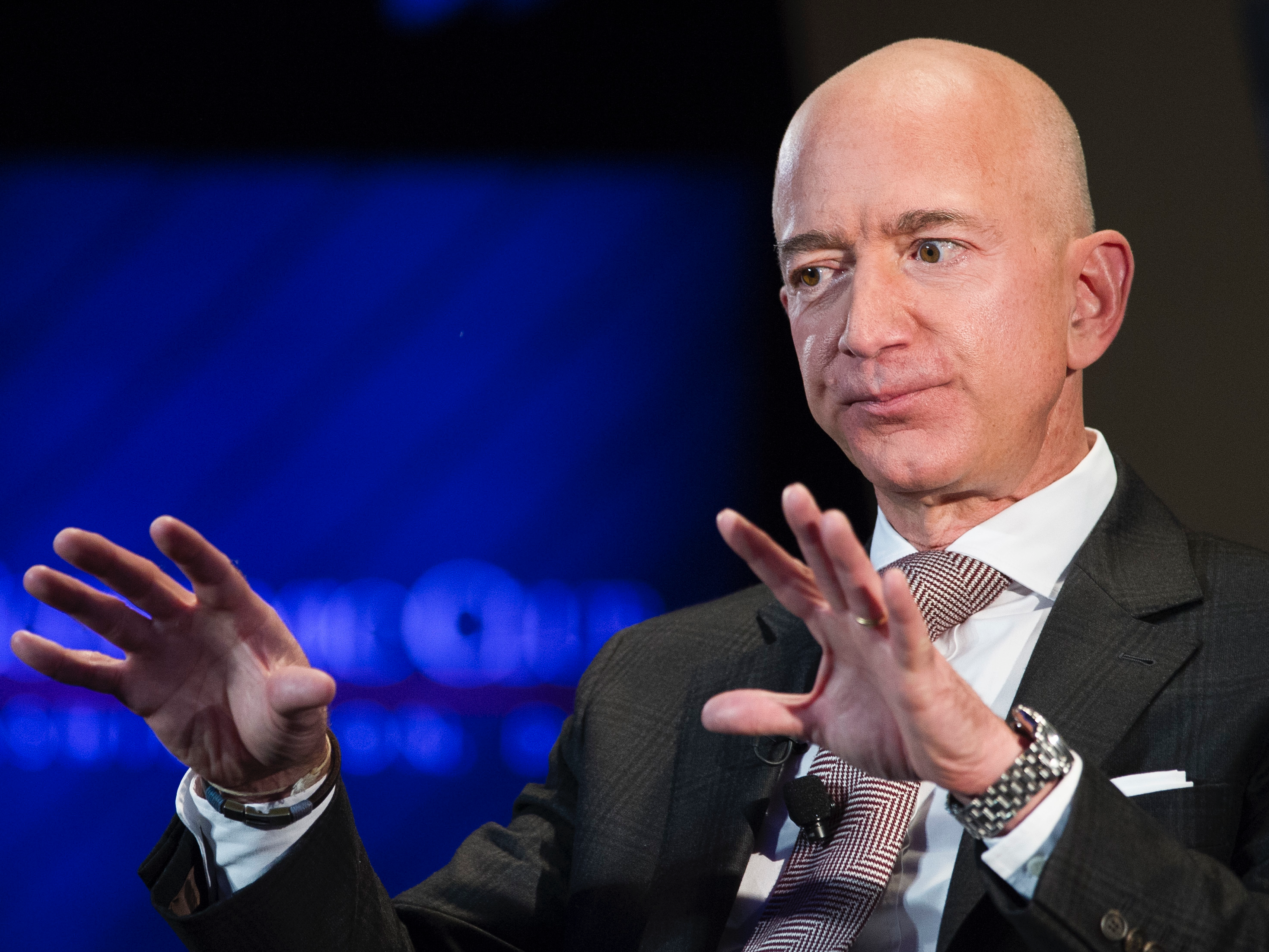- Jeff Bezos shared several insights into Amazon during a talk at the Economic Club of Washington on September 13.
- Early in the talk, he expanded on Amazon’s leadership principle of customer obsession. Business leaders must focus on the customer rather than the competitor, he said.
- Bezos said he looks for that customer obsession when he invests in new businesses, as well.
Amazon has 14 leadership principles that guide its employees’ business decisions, but founder Jeff Bezos said just one is the “secret sauce” to the trillion-dollar company’s success.
“(T)he No. 1 thing that has made us successful by far is obsessive compulsive focus on the customer as opposed to obsession over the competitor,” Bezos said in a talk at the Economic Club of Washington on September 13.
Focusing on what customers want or need has driven many of Amazon’s most profitable business moves.
Take Amazon Prime. Bezos said at the talk that Amazon developed Prime, a paid subscription service for free two-day delivery, because he knew consumers love free shipping. Introduced in 2005, the service drew ire for being "too good to be true" and helped underline the idea that Amazon is too inexpensive to be profitable. The message was clear: Prime is draining Amazon's profits and its stock.
But it's clear now that pleasing its customers, rather than bumping Amazon's short-term bottom line, has been a shrewd business move. Amazon Prime customers spend an average of $1,300 in a year, nearly twice that of non-members. More than 100 milion people globally are Prime members.
Missionary or mercenary?
Bezos added that it's easy to see if an entrepreneur or CEO has that same customer obsession, or if they're just trying to nudge out their competitors and boost their stock.
"I talk so often to other CEOs and founders and entrepreneurs, and I can tell even though they're talking about customers, they're really focused on competitors," Bezos said.
When he senses a lack of customer obsession, Bezos said he doesn't want to invest in or acquire the company. He's previously drawn a line between "missionaries" and "mercenaries" in the business world.
"The missionary is building the product and building the service because they love the customer, because they love the product, because they love the service," he said in 2015. "The mercenary is building the product or service so that they can flip the company and make money."
And as he added in 2018, "It's usually the missionaries who make the most money."
As an example, Bezos highlighted The Washington Post, which he bought in 2013. He said the Post, which is now profitable, has been successful by focusing on delighting its readers, not simply courting advertisement dollars.
"By the way, where do advertisers want to be? Advertisers want to be where there are readers," Bezos said. "It's really not that complicated. It comes around really well."

